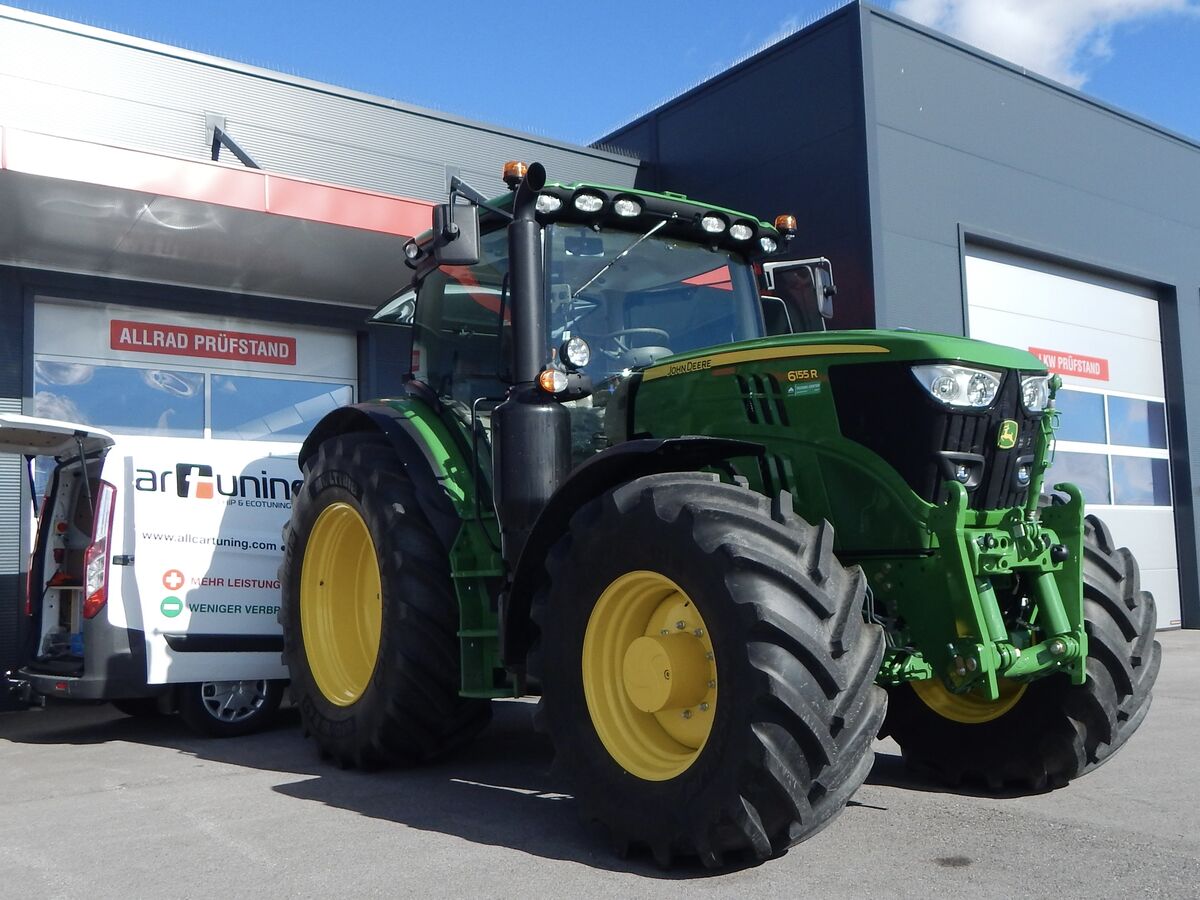JOHN DEERE
DEF DELETE

John Deere® is a registered trademark of Deere & Company and is used herein without affiliation or endorsement.
If you're looking to maximize the efficiency of your John Deere machinery, a DEF delete could be the solution you need. By removing the DEF (Diesel Exhaust Fluid) system, you can enhance the reliability, power, and overall longevity of your equipment.
What is John Deere DEF Delete?
The John Deere DEF delete is a modification process that removes the DEF system from your machinery. This system, designed to reduce emissions, often introduces unnecessary complications, including frequent maintenance and potential downtime. By opting for a DEF delete, you eliminate these issues and ensure your equipment operates smoothly without the constraints imposed by the DEF system.
Advantages of John Deere DEF Delete
- Reduced Maintenance Costs: The DEF system requires regular refills and maintenance. By removing it, you cut down on these recurring expenses, allowing you to save money over the long term. Additionally, the risk of DEF-related malfunctions is eliminated, reducing costly repairs.
- Enhanced Reliability: DEF systems are prone to failures, especially in harsh working environments. A DEF delete ensures that your John Deere machinery is more reliable, reducing the likelihood of unexpected breakdowns and keeping your operations running smoothly.
- Continuous Operation: Minimize downtime by eliminating DEF system issues and reducing the need for frequent repairs.
Frequently Asked Questions (FAQs)
Is John Deere DEF Delete Legal?
It's essential to check local emissions regulations. We provide advice tailored to your location to ensure compliance with all legal requirements.
Will a DEF Delete void my warranty?
In some cases, modifications like a DEF delete may affect your warranty. We recommend reviewing your warranty terms before proceeding.
How long does the process take?
Our John Deere DEF Delete service typically takes a few hours, depending on your equipment model.
Ready to enhance your John Deere machinery's performance? Contact us today to learn more about our John Deere DEF Delete service. Our team is here to answer any questions and schedule your appointment.
Diesel Exhaust Fluid (DEF)
is an essential component in modern John Deere machinery, helping to reduce harmful emissions and comply with environmental regulations. However, while DEF systems are beneficial for the environment, they can sometimes cause operational headaches for equipment owners and operators. In this blog, we'll discuss some common DEF fluid problems encountered with John Deere equipment and provide tips on how to address them.
1. DEF Crystallization
One of the most common issues with DEF systems is crystallization. DEF is a mixture of urea and deionized water, and if it isn't stored or handled properly, it can crystallize. This can lead to blockages in the DEF lines, injectors, and filters, causing the system to malfunction. When crystallization occurs, it can result in poor engine performance, increased emissions, or even complete system failure.
Solution: To prevent crystallization, ensure that DEF is stored at the recommended temperature (between 12°F and 86°F). Regularly inspect and clean the DEF tank, lines, and injectors to remove any crystallized deposits. Using high-quality DEF and properly sealing the DEF tank after use can also help reduce the risk of crystallization.
2. Contaminated DEF
DEF is highly sensitive to contamination, which can occur if the fluid is exposed to dirt, dust, or even trace amounts of certain chemicals. Contaminated DEF can lead to clogging in the system and damage to components, resulting in costly repairs and downtime.
Solution: Always use clean, sealed containers when refilling DEF and avoid contact with any foreign substances. Store DEF in a clean, dry area and keep the container tightly closed when not in use. If contamination is suspected, it's essential to flush the DEF system and replace the fluid with a fresh, uncontaminated batch.
3. DEF Quality Issues
Low-quality or improperly mixed DEF can cause a range of issues, from decreased performance to system malfunctions. DEF that doesn't meet the required standards can fail to reduce emissions effectively, leading to regulatory compliance issues.
Solution: Only purchase DEF from reputable suppliers who adhere to ISO 22241 standards. Regularly check the DEF concentration and quality using DEF testing kits to ensure it meets the necessary specifications.
Legal aspects
These product modifications may not be permitted in all countries and can affect your vehicle’s type-approval, insurance coverage and warranty claims. You confirm that you have read and understood Sections 7.16, 7.17 and 7.18 of the Terms & Conditions and will verify all local legal requirements with your authorized dealer or a qualified expert before use.
PROFIT